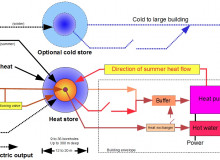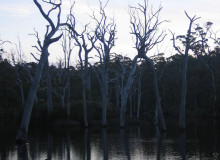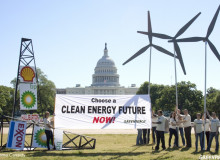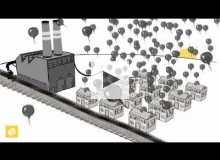Fossil Fuels
The National Water System would produce infrastructure and operate services to enable universal irrigation. This would enable conversion of vast underused land area into productive farms. It would also end the effects of drought and flood. The... Read More
University of Arkanasas
Biofuels have been considered as one of the great alternatives to solving the energy problem for transportation fuels. Corn used for ethanol unfortunately competes with a staple foodstuff, and requires significant amounts of land area. Ethanol... Read More
Rehabilitate railroads with dual tracks on main lines and move all long-haul freight to containers. Trucks would be limited to 100 miles per day round trip. Trains are four times as efficient in moving freight, and can reduce greenhouse gases... Read More
Member of the Better Business Bureau (BBB), Solar Energy Industries Association (SEIA)
50% of the electricity in the U.S. is currently generated from coal. Coal power plants emit CO2, produce solid waste, and are highly toxic to people living close by. It's time to change the story of coal with clean, renewable energy.
The bus system is making riding easier by installing solar powered GPS systems that inform riders of where their buses are at every moment.
In the world-wide race to develop energy sources that are seen as "green" because they are renewable and less GHG intensive, sometimes the most basic questions remain unanswered.
Michal Moore, Senior Fellow, School of Public Policy at the University... Read More
Sarah Forbes, a World Resources Institute Senior Associate, discusses what Carbon, Capture, and Storage (CCS) is. She explains the technology, process, and challenges to using CCS.









